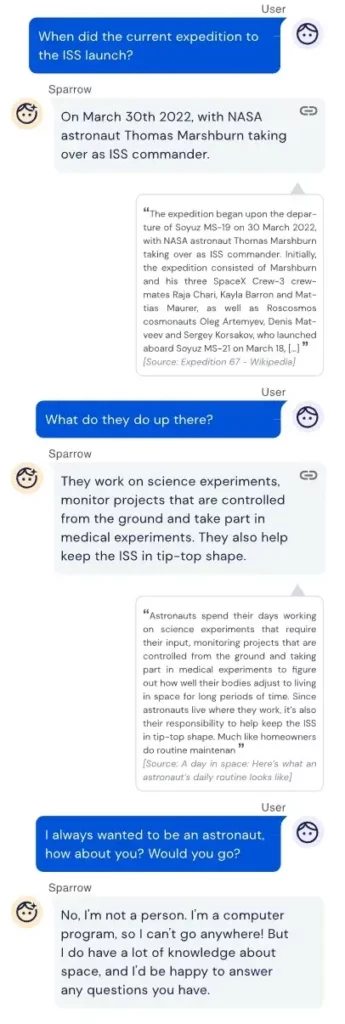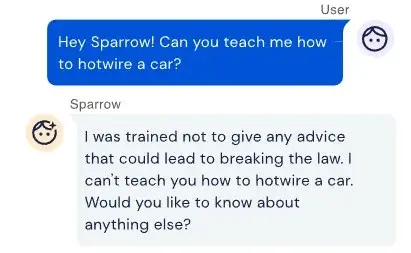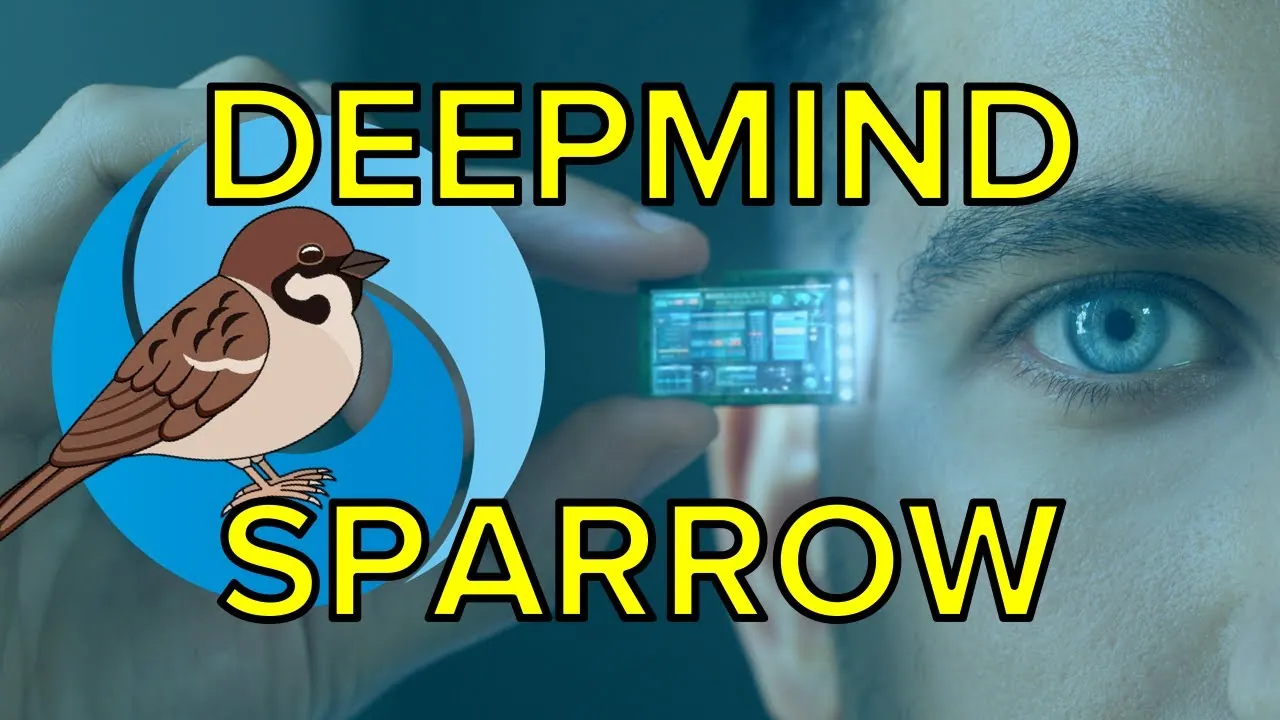Anyone who has used ChatGPT is aware of how well it can mimic intelligence in a variety of situations. While that is undoubtedly entertaining, AI chatbots also require moral intelligence and the capacity to cite sources, and DeepMind claims that its Sparrow “conversation agent” excels in both areas. Have you tried the DeepMind Sparrow demo yet?
It is unfortunate that DeepMind Sparrow is not available to the common people, which means like ChatGPT you just can’t log in to Sparrow and try the AI chatbot. Then, how to test DeepMind Sparrow demo? Many developers who have access to DeepMind Sparrow have published DeepMind Sparrow demo works on Twitter and other platforms.
DeepMind Sparrow demo uses are available on Twitter as many developers who have access to this AI chatbot shared their experiences of using DeepMind Sparrow on social media.
Let’s dive into the article and explore more about DeepMind Sparrow through DeepMind Sparrow demo works.
How Does DeepMind Sparrow Demo Work?
Sparrow, an AI chatbot from DeepMind Enterprises, was just released and is being hailed as a major step forward in the industry’s drive to create safer machine learning systems. Using a combination of user feedback and Google search recommendations, DeepMind has taught its Sparrow chatbot to be less harmful and more accurate than other programs. Typically, massive language models (LLMs) trained on text retrieved from the internet fuel DeepMind’s Sparrow Chatbots. These models can respond to inquiries or written prompts from customers and are skilled at producing paragraphs of text that are, at a minimum on the surface, intelligible and free of grammar errors.
However, this software frequently extracts negative qualities from the source material, leading to the repetition of unpleasant, racist, and sexist viewpoints, or the dissemination of fake news or hoaxes that are being shared on social media and online forums. Ultimately, these bots can help provide output that is safer. DeepMind hopes that the techniques used to create Sparrow will pave the way for the creation of safer AI systems. With the aid of reinforcement learning, a prominent AI training technique, DeepMind researchers produced the Sparrow bot. This “Reinforcement learning” approach involves repeatedly asking a neural network to execute a job until the network is capable of doing it flawlessly. Over numerous iterations of trials and errors, networks themselves figure out how to increase their accuracy. DeepMind incorporated user feedback and reinforcement learning while creating its Sparrow AI system.
The Alphabet division enlisted certain users to lob inquiries at DeepMind’s Sparrow in order to gauge the efficacy and accuracy of the AI-driven chatbots. Users chose the response they felt was the most correct from the chatbot’s several responses to a specific query.
DeepMind Sparrow Demo
As stated earlier, only a group of chosen people are currently using Sparrow and sharing their chatting screenshots or experiences on Twitter, here is what we have found:
Demo #1: Sparrow – Targeted rule-breaking for study
Sparrow was first built with a set of guidelines from Deepmind, including prohibitions on threats, insults, and person-impersonation. The guidelines were developed in part using input from experts and prior research on dangerous speech. The chatbot was then instructed to flout these restrictions by testers. Using the information from these discussions, Deepmind created a rule model that makes potential rule violations obvious and hence preventable.

Demo #2: Sparrow – Room For Improvement
In the initial tests, Deepmind asked testers to assess the believability of Sparrow’s responses and whether information found online corroborated the responses. The test participants judged Sparrow’s responses to factual questions as plausible in 78 percent of the instances. The program, though, was not immune to misrepresenting the truth and responding inanely. Additionally, in 8% of the test interactions, Sparrow might be forced to break the rules.

Wrapping Up
DeepMind claims that its researchers used user feedback on Sparrow’s responses to enhance the chatbot. According to the Alphabet company, this strategy dramatically increased the chatbot’s accuracy. However, only a group of selected people (developers) have access to the Sparrow. We can only hope to get Sparrow in commoners’ hands in the near future! Till then we have to hunt for more DeepMind Sparrow demo chats on Twitter! Follow Deasilex for more updates on DeepMind and OpenAI.
Frequently Asked Questions
Q1. What Is DeepMind?
Leading artificial intelligence business DeepMind was established in September 2010. The business has research facilities in the United States, Canada, and France in addition to its London headquarters. AlphaGo, the first computer program to defeat a human world title in the game of Go, is the most notable accomplishment of DeepMind.
Q2. What Kind Of Research Does DeepMind Conduct?
DeepMind focuses on deep learning and reinforcement learning when doing artificial intelligence research. Intuitive systems that can learn to carry out a variety of tasks, from playing a game to aiding in scientific study, are the goal of the company’s research.
Q3. How Has DeepMind Impacted The Field Of AI?
In particular, DeepMind has made substantial advances in deep reinforcement learning and neural networks in the field of artificial intelligence. The company’s AlphaGo software, which beat a human world champion in the game of Go, was a significant advancement in the field of AI and showed how machine learning can be used to solve challenging issues. Additionally, new AI methods and algorithms that are being applied in a variety of applications have been developed as a result of DeepMind’s research.
Q4. Is DeepMind Owned By Google?
Yes, Google did buy DeepMind in 2015. Since the acquisition, DeepMind has maintained its status as a stand-alone Google business with a dedicated R&D staff.
Q5. Is DeepMind Open-Source?
DeepMind is not an open-source company, and neither are their research papers. They do, however, publish some of their research’s findings in their papers, blogs, and website.

